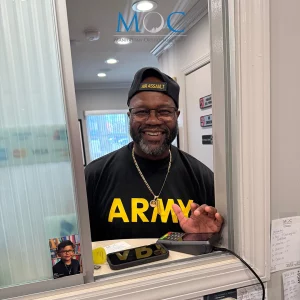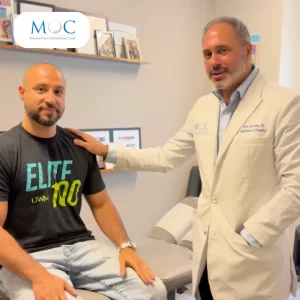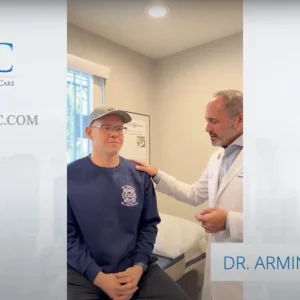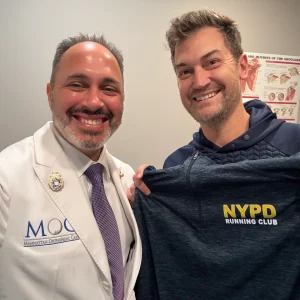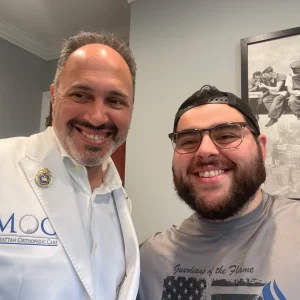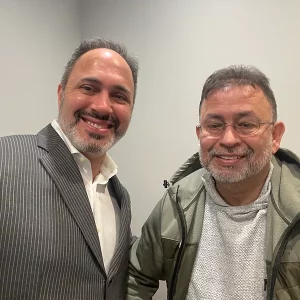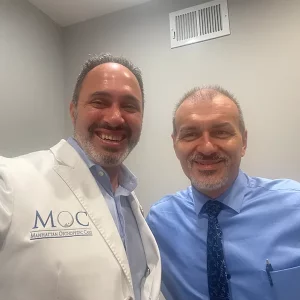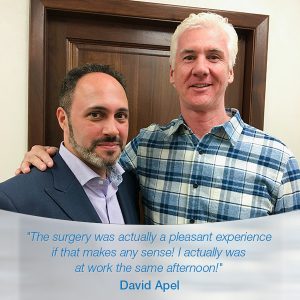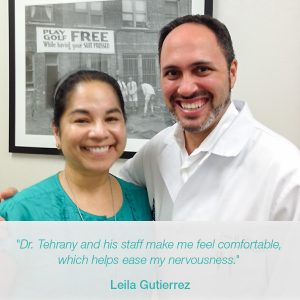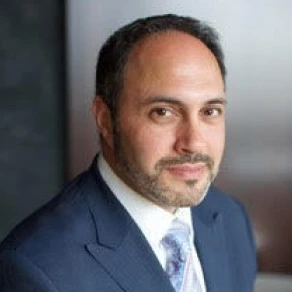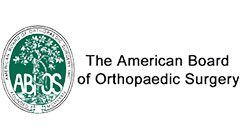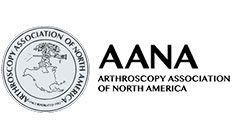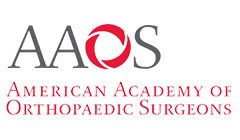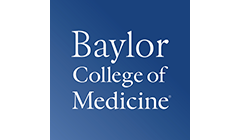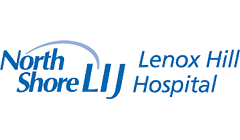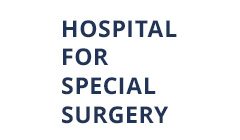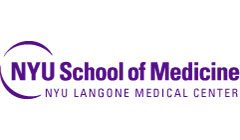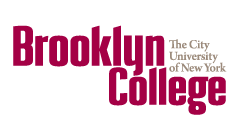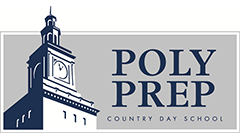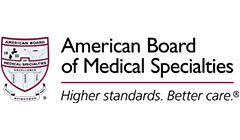What Are Anterior Cruciate Ligament (ACL) Tears?
The Anterior Cruciate Ligament (ACL) is a vital tissue connecting your thighbone (femur) to your shinbone (tibia), providing crucial stability to the knee joint. An ACL injury happens when this ligament is stretched or torn, often during sports involving sudden stops, pivots, or direct impact. Patients frequently report hearing a distinct “pop,” followed quickly by significant pain, immediate swelling, and a feeling of instability or buckling in the knee. Dr. Armin Tehrany, a board-certified torn ACL doctor in New York, prioritizes precise assessments and timely care, using advanced diagnostic tools to restore comfort, mobility, and confidence to the knee.
Types of Torn ACL
ACL injury tears are classified into grades based on the severity of the damage to the ligament. This grading helps to determine the most suitable torn ACL treatment plan. Dr. Tehrany meticulously evaluates the extent of the tear, often utilizing tools like ACL injury MRI results, to classify the injury accurately for New York patients.
Grade 1 Sprain
This involves minimal ligament stretching with no significant instability. The ligament is still intact and functional, and the recovery often involves non-surgical methods and careful management.
Grade 2 Tear
A Grade 2 ACL injury signifies a partial tear. The ligament is loosened, leading to some knee instability, discomfort, and difficulty bearing weight. Treatment for a torn ACL varies based on individual activity levels and stability needs
Grade 3 Tear
This is a complete ACL tear. The ligament is split into two pieces, resulting in significant knee instability. Patients frequently experience severe pain and may feel a popping sensation at the time of injury, followed by swelling and limited motion. This type requires surgical treatment most of the time.
Combined Injury
Often, an ACL injury occurs alongside damage to other knee structures, like the meniscus or other ligaments (MCL, LCL). Dr. Tehrany diagnoses these complex injuries for comprehensive care.
ACL Injury Tear Symptoms
The most common symptom of a torn ACL is knee pain accompanied by swelling.
Other symptoms of an ACL knee injury may include:
- An immediate feeling of weakness in the joint
- A popping sound under the patella
- Knee instability while walking
- Limited motion
- Stiffness
- Bruising
If you experience any of these knee injury symptoms, we recommend scheduling an appointment with Dr. Tehrany for a diagnosis and effective treatment and care.
Causes of Condition
An ACL tear is typically caused by a severe injury or trauma to the knee, often during athletic activities or high-impact sports. Such physical activities can include:
- A sudden stopping and twisting motion of the knee joint
- Any movement that forces the joint to bend beyond its normal range of motion
- Incorrect landing from a jump
Physical conditioning, muscular strength, and neuromuscular control can also impact the extent of the anterior cruciate ligament injury experienced.
Torn ACL Treatment Options For New York Patients
There are various treatment options for patients suffering from a torn anterior cruciate ligament.
Staten Island’s top-rated orthopedic surgeon, Dr. Tehrany, recommends booking a consultation with your physician or orthopedic doctor to examine whether any other structures in the knee may be affected.
Treatment options will also depend on whether it is a partial or complete ACL tear, as well as the patient’s fitness level and the degree of joint instability.
In the case of a partial anterior cruciate ligament tear, physical rehabilitation with regular follow-up care could improve mobility and healing without a need for surgical intervention.
However, in the case of a complete ACL tear, the prognosis may require surgical intervention (patellar tendon autograft, hamstring tendon autograft, quadriceps autograft, or allografts).
Cold Compress
Applying a cold compress can help reduce immediate swelling and discomfort following an ACL injury. Icing the knee for short intervals several times a day limits inflammation. This simple method supports the healing process, especially when combined with adequate rest. It is a common first step before exploring additional treatment options with a torn ACL doctor.
Wrapping and Elevating the Knee
Compression wraps stabilize the knee, minimizing unwanted movement while encouraging blood flow to the injured area. Keeping the leg raised on a pillow or chair helps drain excess fluid and reduce swelling. When undertaken consistently, these measures can support the knee’s natural recovery and may shorten the overall rehabilitation period, especially in milder cases of ACL tears.
Physical Therapy
A structured physical therapy program enhances strength, restores flexibility, and improves balance. Exercises often include controlled movements, gradually increasing in intensity as the knee recovers. Sessions focus on reintroducing daily functions and preventing re-injury. Dr. Tehrany will track progress closely and adjust routines to ensure effective results, making this approach an essential part of treatment for a torn ACL.
Anti-Inflammatory Medicine
Non-prescription or doctor-prescribed anti-inflammatory medications help alleviate discomfort and swelling. They assist in stabilizing the knee by reducing pain, which encourages patients to participate in physical therapy. However, these medicines should be taken under professional supervision to avoid possible side effects. Combining medication with other non-surgical options often contributes to improved outcomes.
Knee Surgery
Surgical intervention is often recommended for severe tears or when conservative methods fail. The procedure can involve grafting healthy tissue to reconstruct the ACL. Dr. Armin Tehrany, a specialist in torn ACL treatment in New York, uses advanced techniques to ensure effective outcomes. Surgery is commonly combined with therapy and follow-up care to promote lasting knee stability.
Potential Risks of Torn ACL Treatment
While non-surgical treatments are safe and effective for milder injuries, there are possible risks after surgery that can include infections, adverse reactions to anesthesia, or prolonged discomfort during healing. Surgical complications may also arise if the knee does not heal properly after reconstruction. Each patient’s situation is evaluated beforehand, ensuring the most appropriate approach is selected to reduce potential complications.
Recovery From Torn ACL Treatment
Recovery length varies based on the severity of the ACL tear and the chosen approach. Non-surgical strategies might require weeks or months of rest and therapy. After surgery, patients typically follow a structured rehabilitation schedule that includes progressive exercises, monitoring, and ongoing professional support. Physical therapy sessions improve range of motion, strength, and knee stability. With commitment to the prescribed routine, most individuals regain normal knee function and return to daily activities or sports without any major recurrence of symptoms.
Why Choose Dr. Armin Tehrany for Trusted Orthopedic Care in New York
Dr. Armin Tehrany is a highly regarded orthopedic surgeon serving patients throughout Staten Island, known for his expertise in treating anterior cruciate ligament (ACL) injuries that impact knee mobility. ACL tears typically occur when the ligament connecting the femur to the tibia inside the knee joint is torn or gradually weakened, leading to pain and instability.
At Manhattan Orthopedic Care, Dr. Tehrany diagnoses ACL injuries through thorough physical examinations and, when necessary, advanced imaging tests like X-rays or MRI scans. These evaluations help determine the severity of the injury and identify any additional issues, such as fractures or soft tissue damage.
A board-certified orthopedic surgeon, Dr. Tehrany is trusted by both patients and peers for his exceptional care and expertise. His accolades include being named a New York Best Doctor, a Castle Connolly Top Regional Doctor, and a recipient of the Super Doctors Award. As an honorary police surgeon, he is recognized for his dedication to treating a wide range of knee conditions and injuries.
Dr. Tehrany is also passionate about advancing minimally invasive treatment options for knee and shoulder disorders, ensuring patients receive the most effective and innovative care available.
Take the first step toward restoring your mobility and managing ACL pain by scheduling an appointment with Dr. Armin Tehrany. Request a consultation through our online form or call us at (212) 729-9200 today.
FAQs:
How Soon Should I See a Torn ACL Doctor After Injury?
Seek medical attention as soon as possible for an ACL injury, MRI, or evaluation to prevent further damage and determine the correct course of treatment.
Can an ACL Tear Heal on Its Own?
Grade 1 sprains may heal with rest, but complete (Grade 3) tears typically don’t heal naturally. Proper evaluation and torn ACL treatment from Dr. Tehrany are usually necessary for recovery.
Can I Resume Sports After Treatment for a Torn ACL?
Most individuals can return to sports after rehabilitation if the injury is properly managed and healed. A precise recovery plan greatly supports a safe comeback.
Schedule a Consultation With ACL Tear Specialists in NYC
Our goal is to restore your mobility and confidence. Book a Consultation with Dr. Armin Tehrany and start your recovery today.










